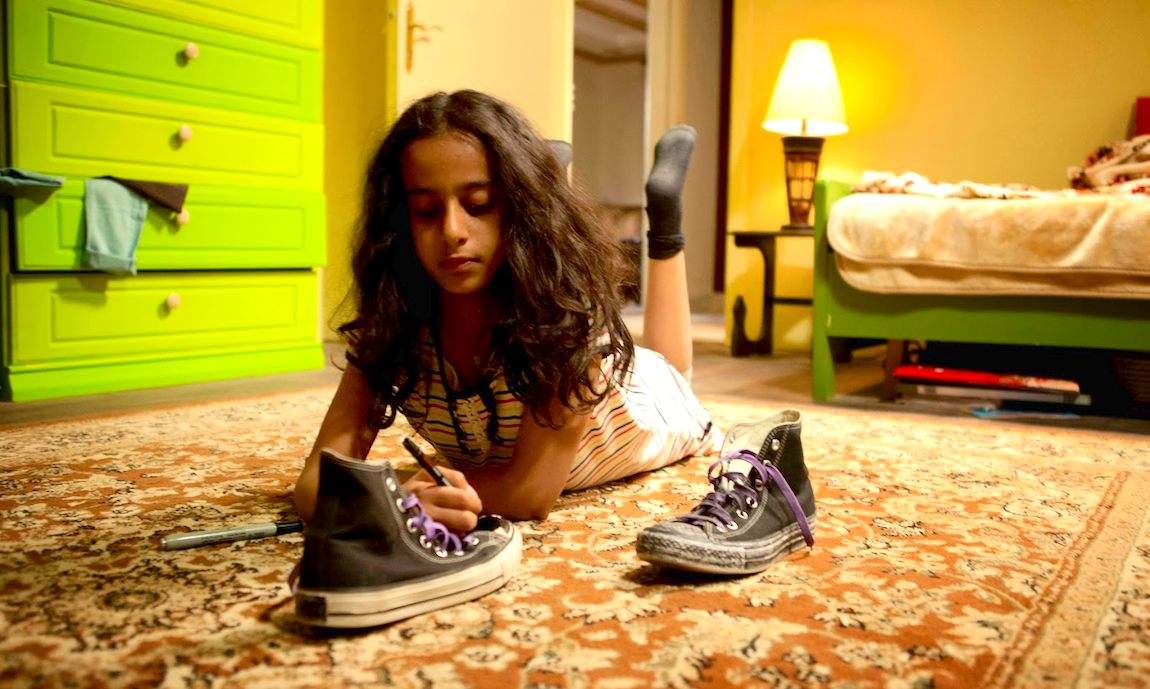Wadjda
Tiny acts of gender subversion are celebrated in the first movie filmed entirely in Saudi Arabia.
Overview
In the film that bears her name, Wadjda (Waad Mohammed) resides within a system of oppression, yet refuses to accept her restrictions. On the cusp of adolescence, the ten-year-old rallies against her surroundings in Saudi Arabian capital Riyadh, be it the strictness of her schooling or the expectations of her gender — appropriate interests, friends and public behaviour included.
In class, Wadjda is admonished for laughing, leaving her head uncovered and trading forbidden items. At home, she watches her mother (Reem Abdullah) worry about her husband taking a second wife, and struggle with the rude driver who escorts her to work. In response, Wadjda's manifestation of rebellion comes in the humblest — and most age-appropriate — manner.
She desires a green bicycle, but is told no. She wants to cycle in the street, but is strongly discouraged. She yearns to enjoy the same freedoms as her male counterparts, such as her neighbour, Abdullah (Abdullrahman Al Gohani).
The feature's missive of female empowerment is evident in its protagonist, though its message is never bluntly handled. Wadjda, the film, carefully and thoughtfully presents the reality of the role of women in Saudi society, without hiding or heightening the difficulties. Wadjda, the character, remains a shining emblem of possibility and potential, her choices complex and considered, not easy or simple.
Of course, Wadjda's on-screen statement and subversion bears the weight of its revolutionary off-screen status, as the first feature shot entirely in Saudi Arabia, and the first full-length film made by a female Saudi director. Again, writer/director Haifaa Al-Mansour (Who studied at the University of Sydney) remains subtle in her debut fictional effort, with documentary Women Without Shadows her sole other helming credit. Her story says it all, the parallels obvious but the narrative independently affecting.
Lightness, rather than solemnity, provides the pervasive tone. Her images are plain and stark against a dusty background, yet her atmosphere is one of optimism — for the little things. The broader truth is not forgotten; indeed, as Wadjda moves towards triumph, the tale remains one of tragedy. Being able to ride a bike in the street is no small feat, though life in Saudi Arabia is repeatedly filled with similar — and often insurmountable — challenges.
The non-professional cast incisively articulates the dichotomy between the feature's dream and the production's actuality, none more so than Waad Mohammed in her only film role to date. Her wide eyes and expressive face convey Wadjda's determination, but also her growing acceptance. Her performance is feisty and finessed in turn, straddling the line between youthful exuberance and dawning realisations. Mohammed's portrayal truly gets to the centre of the hopeful and heartbreaking feature: cognisant of limitations, but forever striving for change.





